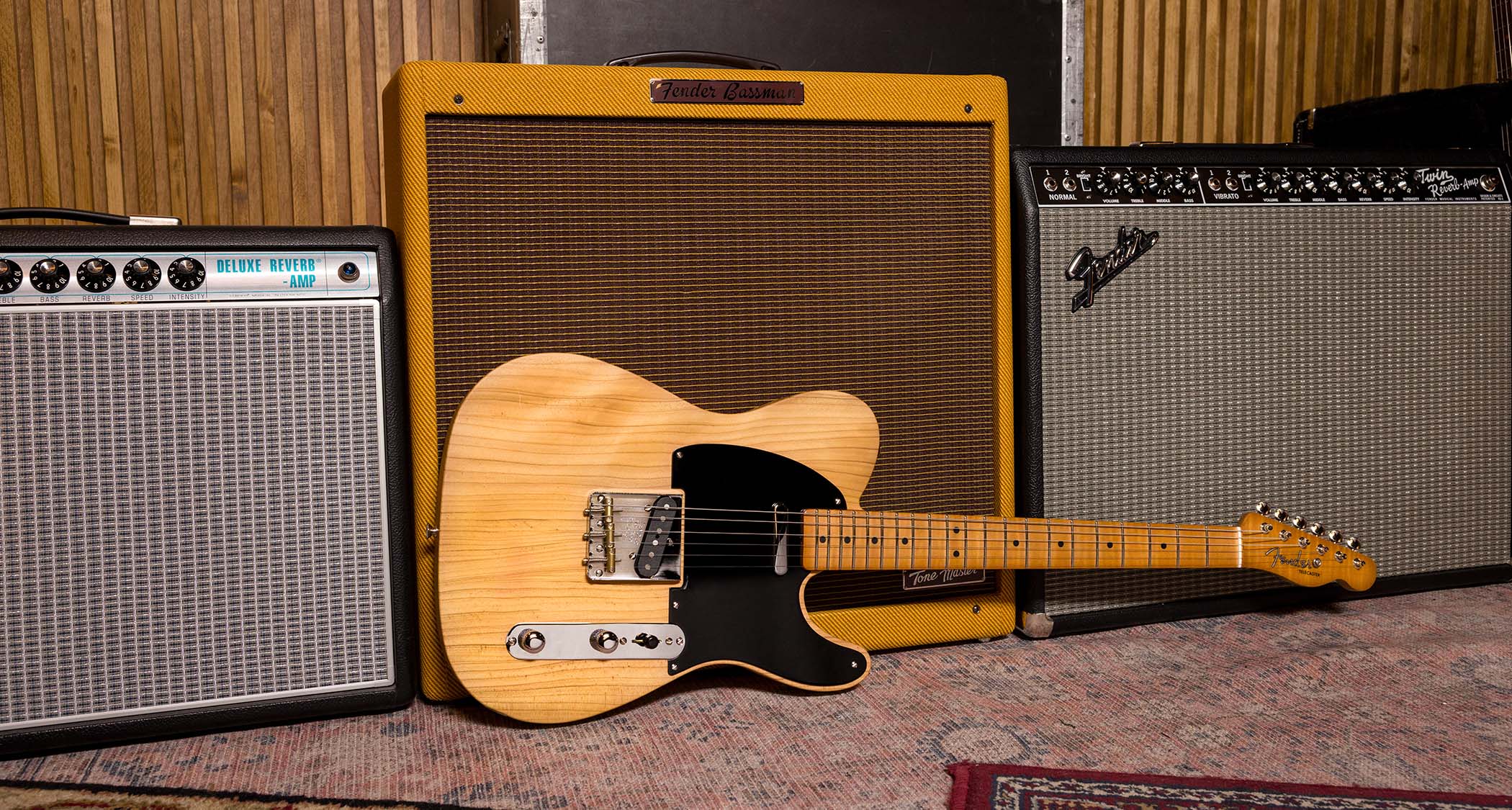“The way we played guitar, the way I voiced against Tom, we found it on American Girl. I thought, ‘This is us.’ Those two guitars helped make it happen”: Mike Campbell on how his lifelong musical connection with Tom Petty was forged in a matter of days
As he celebrates the release of his memoir, Heartbreaker, Tom Petty’s right-hand man and dear friend reflects on a career’s worth of enduring hits, and why he “never doubted the music”
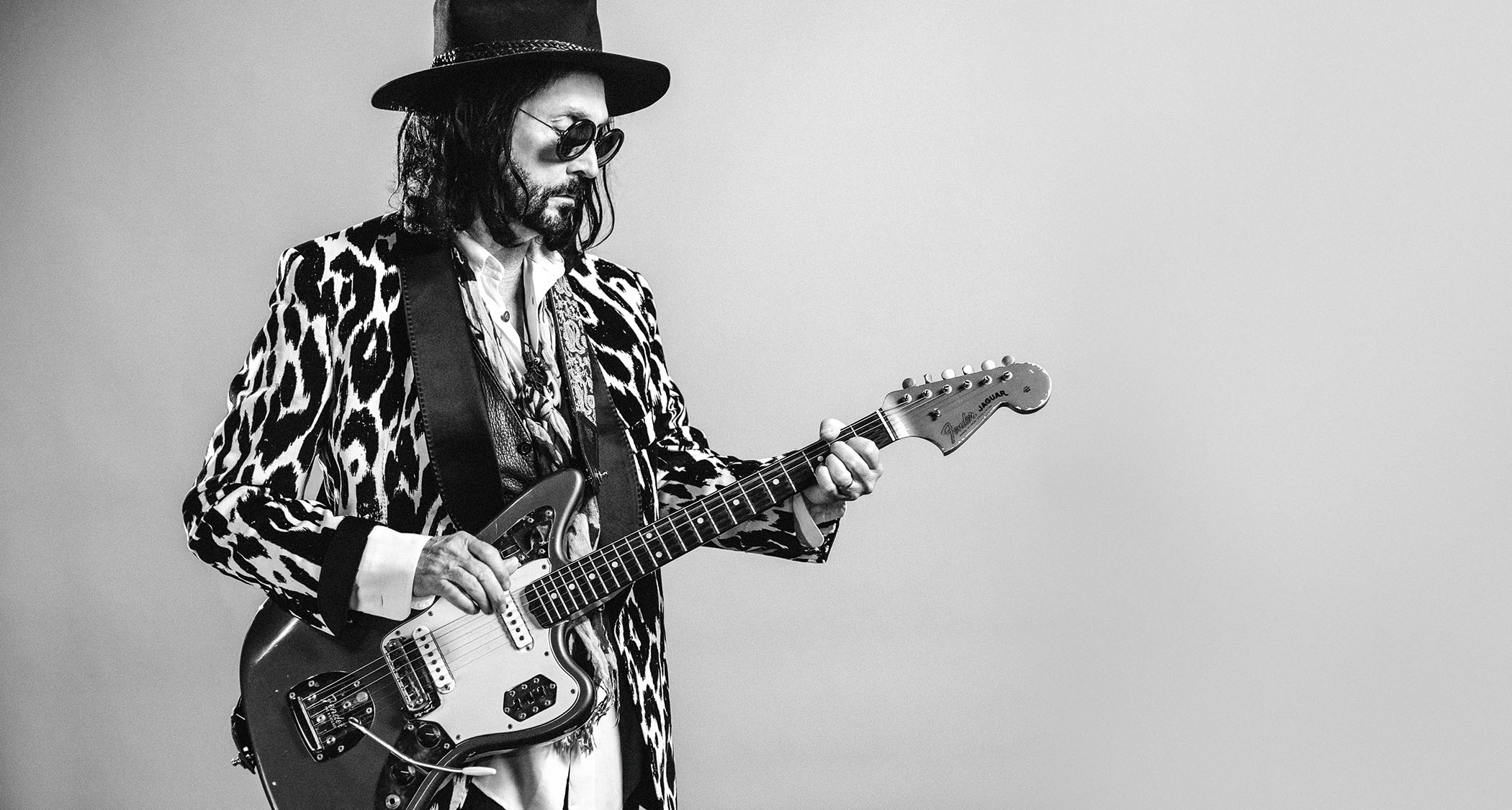
Known as the chiming lead guitarist for Tom Petty And The Heartbreakers, and his tendency to brandish a beloved beaten Broadcaster, Mike Campbell was born to strum six strings.
“I loved it right off the bat,” he says. That’s obvious as Campbell’s mojo-laden connection with fellow songsmith Tom Petty manifested music for the ages. Albums such as Tom Petty And The Heartbreakers (1976), Damn The Torpedoes (1979), Long After Dark (1982) and Southern Accents (1985), to name a few, feature droves of Campbell-penned and -assisted cuts. And it was as easy as it seemed.
“It was just one of those things you can’t explain,” Campbell says. “It’s a lot of luck and hard work, and here we are. I don’t know if people realise how much work and sacrifice we put into it,” he says. “Before things started to happen after Damn The Torpedoes, and we started to get some commercial success, it wasn’t easy. It took a long time – and it wasn’t overnight.”
Challenging as it was, songs like American Girl, Breakdown and Refugee told Campbell that he was on the right path. “I never doubted for a second that, somehow, it was going to work out,” he says. “And it worked out beyond my dreams.”
More than 50 years later, and Campbell was in the position to write his life story in a book, the aptly titled Heartbreaker. He lost the man he calls a “brother”, Tom Petty, in 2017, joined Fleetwood Mac for a spell around a year later, and has carried on with his band, The Dirty Knobs, ever since.
“It’s a lot of emotions,” Campbell says of writing his book. “I don’t generally look back, but I was kind of forced to relive some of the things I went through. Mostly, what I feel is gratitude. I realise how lucky I am. I’m grateful for the life I’ve had.”
And why shouldn’t he be? In addition to his Heartbreakers exploits, Campbell has lent a hand to Stevie Nicks, Don Henley, Johnny Cash and dozens of others. He doesn’t fancy himself a session player but admits he’s always been filled with songs.
All the latest guitar news, interviews, lessons, reviews, deals and more, direct to your inbox!
“It was never a challenge,” he says. “I just did what I wanted to do. I stuck to my guns and to the integrity of who I thought I was. And with Tom, he could take my music and his music and write those great songs with his personality. Those songs still hold up. I think that’s what set us apart, that we had strong songs.”
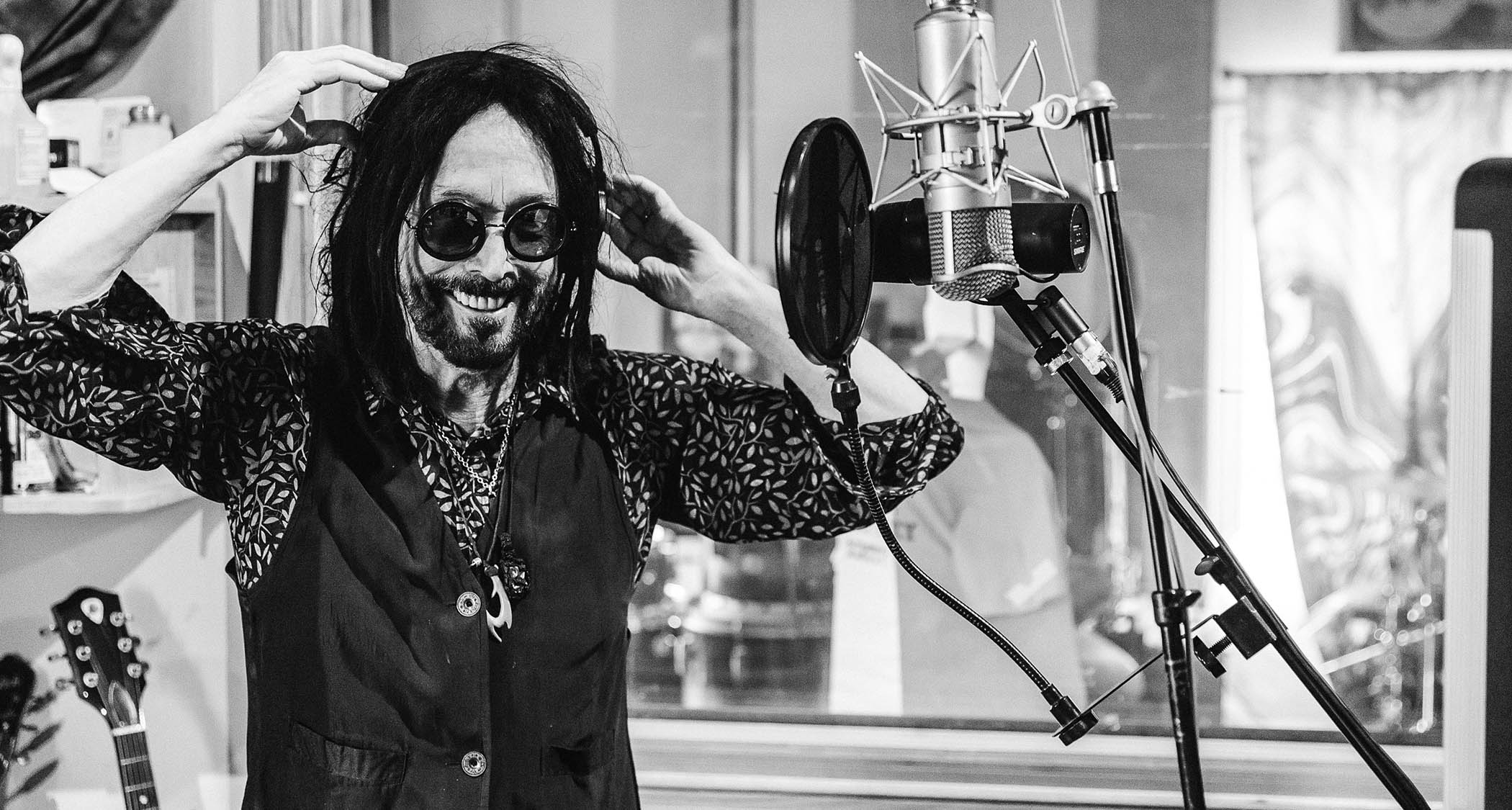
To that end, Campbell still feels sadness when he looks back on Petty’s untimely death. He feels they left nothing on the table, though they had more to do – but it’ll never stop him from continuing.
“He and I had a connection,” he says. “Tom and I wrote the songs together, and there was something that we both felt was special and once in a lifetime; it was a connection and it’s magical. I don’t know why we found each other when we did, but there was something really strong there and it sustained us through the whole career.”
Looking back, what was the lightbulb moment for you when it came to the guitar?
“It was an instant connection when I got my first guitar. It was kind of unplayable, but I didn’t know that at the time [laughs]. I would play until my fingers split, literally, because I was just so enamoured with it; I felt like I found my purpose. The more inspired I was, the more I realised I had a knack, felt very connected and that it was something I could do for the rest of my life.”
What do you think made you the right guitarist for The Heartbreakers?
“That’s quite a question. It was like magic, honestly. It’s magical that my path crossed with Tom’s when it did, and with all the other guys in the band. All the things that led us through our dream together, it’s some kind of bizarre destiny. I don’t know why… but I’m awe-inspired by how things worked out.”

What was the secret sauce between you and Tom?
“We had the same influences, so we immediately connected. We loved 60s music, like The Beatles, The Stones and The Beach Boys. We had both been listening to all the same stuff and were inspired by the same things, so when we met it was almost like we knew each other.”
Do you remember the first time you sat down to write with Tom?
“He was starting to write songs and I was messing around trying to write, too. I remember one day after I’d known him for – I don’t know – maybe a few days, we sat down and he showed me a song he’d been writing. He already had a good handle on writing, but I was still learning.
“I said, ‘Well, here’s something I’ve been messing around with…’ I was trying to channel a Byrds-type piece of music and I saw Tom’s eyes light up, like, ‘Oh, that’s exactly the kind of thing I’m trying to do,’ you know? We instinctively tried to accomplish the same things and play the same types of chords. We immediately bonded.”
That bond between you both was apparent in early Heartbreakers songs like American Girl and Breakdown from the band’s eponymous debut album. What gear were you using back then?
“When I first met Tom, he was writing on guitar, but he mostly played bass in the band that we were in, Mudcrutch. When we got to LA, I had a ’64 Stratocaster that I got for $200, which is now probably worth 200 grand! [laughs] Tom didn’t really have a good electric guitar, so I let him use that one when he switched over to guitar.
“Then I went out and got this Fender Broadcaster from some little shop – I had to put our PA on consignment to afford it [laughs]. I brought those two guitars to the studio, and we really found that sound.

“I had the Broadcaster and Tom had the Strat. He was playing Bo Diddley chords, you know, and we wanted to get a 12-string sound on top of it. I love The Byrds, but we didn’t have a 12-string, so on my Broadcaster I played the octaves with a low-D drone to try to sound like a 12-string.
“Suddenly, this harmonic happened that became, to me, the Heartbreaker sound. The way we played guitar, the way I voiced against Tom, we found it on American Girl. It was very exciting when I heard it. I thought, ‘Wow… nobody sounds like this. This is us.’ Those two guitars helped make it happen.”
The Heartbreakers had a string of gold and platinum records through the 70s and into the 80s. And the perception is that the success was overnight… but was it actually that way?
“It got stronger, the more successful we got. But the truth is – and I said this in the book – I think people may be surprised by how much sacrifice, struggle and how many years it took to start having success. Our first two albums weren’t financially successful and we scraped by for a long time, sleeping on mattresses on the floor and living on corn flakes.”
Did any of those struggles lead to periods of self‑doubt for you?
I didn’t know if it would be financially successful; I hoped it would. But I loved what we were doing and I believed in it
“I never doubted the music. I didn’t know if it would be financially successful; I hoped it would. But I loved what we were doing and I believed in it. I would have done it even if we weren’t financially successful because it was in my heart. Of course, you always have self-doubt and concern… I always wanted to be better than I was.”
Damn The Torpedoes was the game-changer for The Heartbreakers. How had your rig evolved by then?
“I was getting better all the time. I had the Broadcaster and a Les Paul Goldtop, and I loaned my Strat to Tom. So I had two guitars and that’s pretty much all. Later in my career, when I could afford to buy more, I did, but I would use those two guitars with my four-track to write music that Tom would hopefully like and put words to. Songs like Refugee, Here Comes My Girl and Stop Draggin’ My Heart Around were all written on that four-track.”
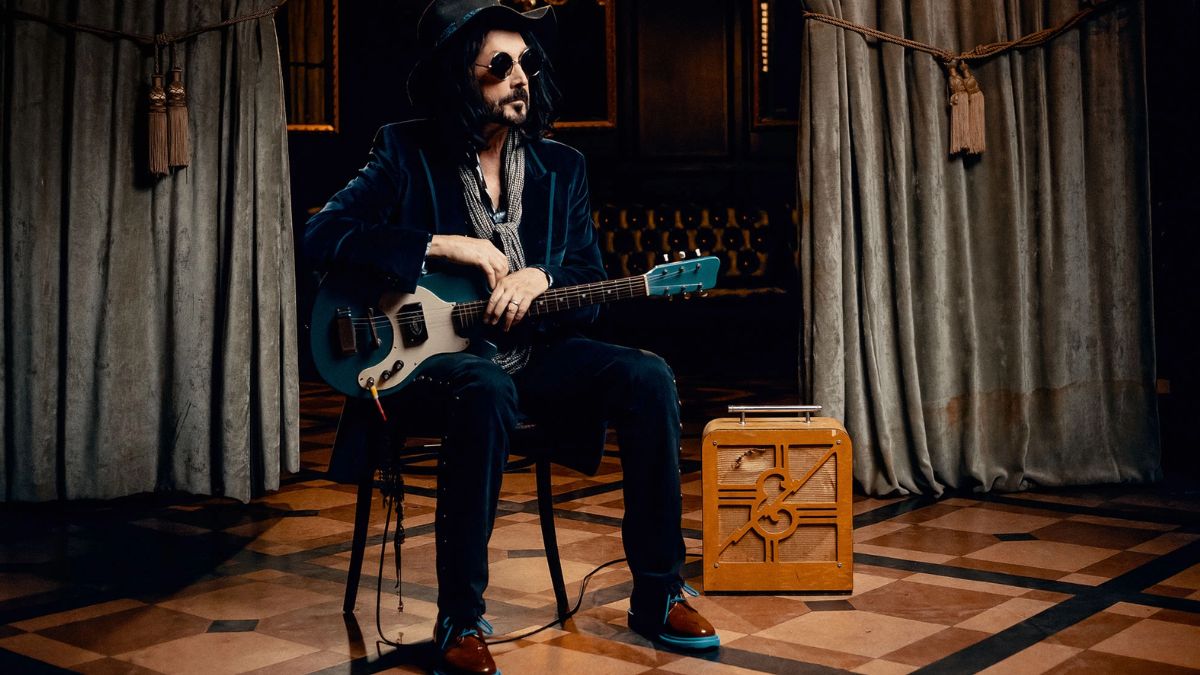
In the 80s, you started doing a lot of session work with artists such as Stevie Nicks and Don Henley, yielding big-time hits. How did that happen?
“To be honest with you, I never considered myself a session player. I was a songwriter and I would write my songs with my guitar style. I didn’t venture out of The Heartbreakers much to do sessions, but if I had a song that Tom didn’t want, I might go to Stevie and she would help me write it and finish it.
“So there’s only a few people I really worked with, like Don Henley, of course, on Boys Of Summer. That was a great moment for me, but I didn’t do it as a session. I wasn’t like a hired guitar player per se. I was mostly focusing on writing songs.”
What do you particularly remember about writing Boys Of Summer?
“[Producer] Jimmy Iovine was the catalyst. I played the music for Boys Of Summer to Tom and Jimmy one day and had a different chorus. It was the same track, but it went minor key on the chorus, which was not that good. Tom listened to it and said, ‘Oh, it sounds kind of jazzy because of the chord in the chorus,’ but Jimmy thought it had something going on.
“Tom passed on it, but Jimmy liked it and had met Don Henley, who was looking for a song. So Jimmy called me and said, ‘If you’ve got something for Don…’ I went back and changed the chorus chords to a major key, which was more uplifting, and that’s the version I played for Don. I don’t know… I was on a roll. This just came to me; I don’t know why.”
Later in the 80s, Tom started recording albums without The Heartbreakers, but he always kept you on. He must have really valued your input.
“It says a lot and comes back to our relationship. It was a very strong, mutual respect. It was stronger than any brotherhood you could think of. It’s to his credit – and my credit – that when he decided to do a solo record, he could have called anybody, but he respected me.”
Does that go back to the connection you two immediately shared in the early days of Mudcrutch?
“He knew I had a knack for bringing something to his songs that made them special, and that I loved his songs. He wanted me there, and I did the best I could to help his vision – and he helped mine as well. We were just really close; we had great respect for each other all the way through.”
In the late 90s and early 2000s, you worked with Johnny Cash on the American Recordings albums. What was it like working with Johnny?
“Rick Rubin saw something in me that he thought was valuable. He was going to do the Johnny Cash project and called me in to help him. I was completely blown away because Johnny was a big influence and a hero of mine. I came in and connected with Johnny; we made those records, which was gratifying. I’m very proud of that.”
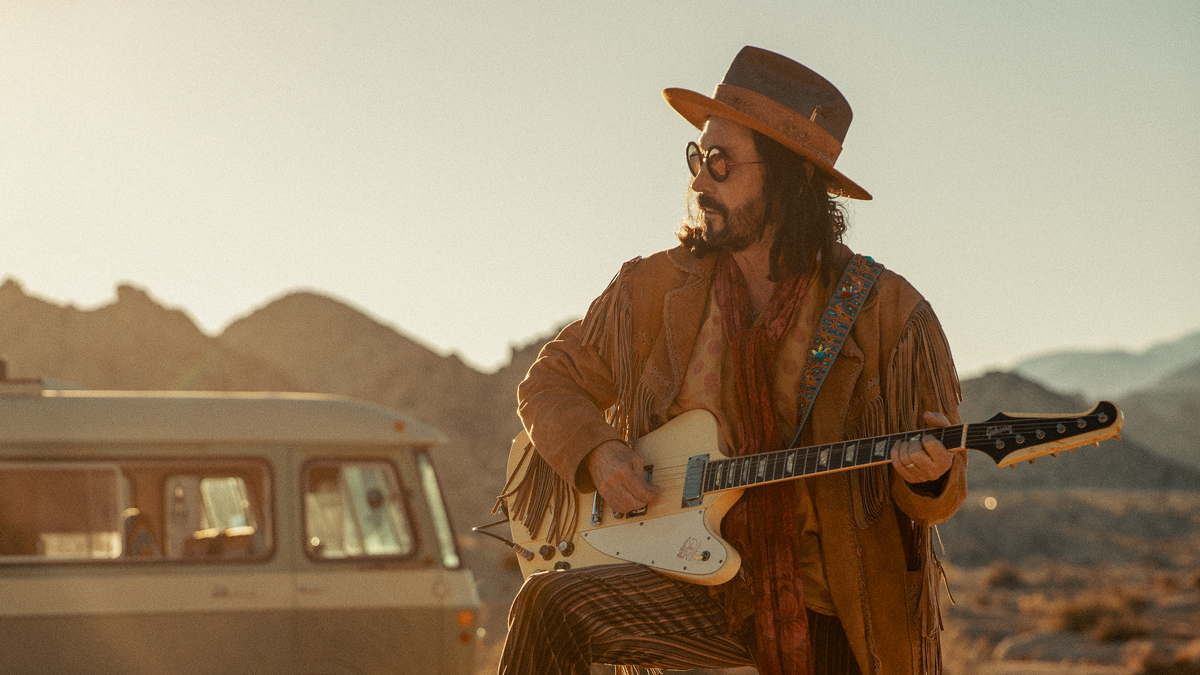
Was it very different working with Johnny when compared with your work with Tom?
You know who Johnny and Tom are the minute you hear them, so there’s a personality there that’s identifiable
“That’s a good question. They’re very strong songwriters. They’re very, in their own ways, distinct vocalists. You know who Johnny and Tom are the minute you hear them, so there’s a personality there that’s identifiable.
“I would try to bring anything I could to the songs and the voices and make them sound better. But with them both, it’s all about those two, their voices, personality and lyrics. They’re very powerful. My job, if I was working with them, was to enhance that without screwing it up.”
Tom passed away very suddenly in 2017. Did that leave you in a space where you were having doubts about wanting to continue making music?
“Losing Tom was huge – and is still huge for me. It’s like I lost my right arm. It took part of my ability to be who I was with him, to some extent. But making music is too much a part of my being to stop. I felt depressed and sad carrying on without him, but I just did the best I could. It never once occurred to me to stop. It was not going to stop me from playing music. Nothing will.”
To that end, you hooked up with Fleetwood Mac in 2018 after Lindsey Buckingham left the band. That must have been a challenge.
I think I did a pretty good job, but no-one can beat Lindsey Buckingham
“That challenge came to me… They called me and offered me the job. I considered the challenge of stepping into Lindsey Buckingham’s shoes, knowing I couldn’t replace him. I learned a lot digging into those songs and trying to bring the essence of them the best I could and how he performed them.
“I think I did a pretty good job, but no-one can beat Lindsey Buckingham. I had to learn a lot of those guitar parts because they were essential to the songs. So I dug in and it was a challenge because I wasn’t used to it. I’m used to doing my own songs, but I’m glad I did it.
“They treated me like gold. We toured around the world and saw the sights; it was like a great paid vacation. I enjoyed playing with Stevie a lot because we have a friendship. It was a joy for me and really helped me through my grief. It took my mind off it and gave me something constructive to do.”
Because Tom died unexpectedly, do you feel like you left anything on the table as far as The Heartbreakers go?
I don’t have any regrets. I mean… I look at my life and what can I regret? Everything that I ever wanted came my way, except for losing Tom
“Well, I don’t know… we had plans. His death was sudden. It was not expected. He was going to get surgery on his hip and we were going to make another record. That was the discussion that we had. But there’s nothing on the table because we used everything we had at the time. And since Tom passed, I’ve had my own band [The Dirty Knobs] and I’ve been writing songs with them. That’s been a good challenge and fun for me.
“I don’t have any regrets. I mean… I look at my life and what can I regret? Everything that I ever wanted came my way, except for losing Tom. But I have no control over that. I wish he was still here. But since he’s not, I have to carry on. And there’s always a new song, you know? There’s always a new challenge to keep me going.”
How do you hope to be remembered as a guitarist?
“As an all-around cool dude [laughs]. I would like to be remembered as someone whose dreams came true. That if it can happen for me, it can happen for you. If you have determination and really have a passion for what you love to do and you do it, you can have an enriched life.
“And I’ve had an enriched life and I’ve got more to go. I’m not done yet. I guess if I have to be remembered, it would be to be remembered for the art, songs and music. Hopefully, that’ll bring joy to the people.”
- Heartbreaker: A Memoir is out now via Grand Central.
- This article first appeared in Guitarist. Subscribe and save.
Andrew Daly is an iced-coffee-addicted, oddball Telecaster-playing, alfredo pasta-loving journalist from Long Island, NY, who, in addition to being a contributing writer for Guitar World, scribes for Bass Player, Guitar Player, Guitarist, and MusicRadar. Andrew has interviewed favorites like Ace Frehley, Johnny Marr, Vito Bratta, Bruce Kulick, Joe Perry, Brad Whitford, Tom Morello, Rich Robinson, and Paul Stanley, while his all-time favorite (rhythm player), Keith Richards, continues to elude him.
You must confirm your public display name before commenting
Please logout and then login again, you will then be prompted to enter your display name.








